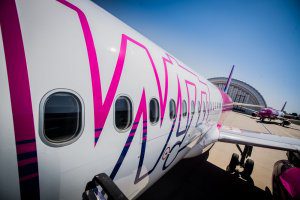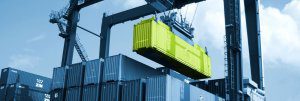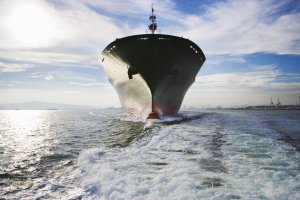
KYIV. Jan 19 (Interfax-Ukraine) – Hungary’s low cost airline Wizz Air resumes its operations in the Lviv International Airport and from April 2017 launches flights from Lviv to Wroclaw (Poland), Wizz Air Chief Corporate Officer Owain Jones has said.
“We officially inform that we start our operations in our second airport in Ukraine – Lviv. Starting from April 2017 we launch the new route from Lviv to Wroclaw,” he said at a press conference in Kyiv on Wednesday.
He said that Wizz Air will service the flights from Lviv to Wroclaw on Tuesdays and Saturdays. First tickets are appeared on the airline’s website. The prices start from UAH 619.
“Our clients will receive advantages travelling not only from Lviv to Wroclaw, but they can also use nine other destinations Wizz Air services in Wroclaw,” he said.
Jones said that in the near future the airline does not plan to resume operations of its subsidiary Wizz Air Ukraine. It will continue developing the base via Wizz Air Hungary.
He also said that the airline does not plan to resume operations in other Ukrainian airports.
He said that now Wizz Air offers 17 flights to eight countries in Ukraine. The recent destinations the airline launched were flights from Kyiv (Zhuliany) airport to Warsaw (Poland), Nurnberg (Germany) and Copenhagen (Denmark).

KYIV. Jan 19 (Interfax-Ukraine) – Ukraine has fully used EU tariff quotas on the deliveries to the European Union of corn, wheat, barley, sugar, poultry, honey, oats, grape and apple juice, malt and wheat gluten, processed tomatoes, barley groats and flour.
“In 2016 Ukraine fully used quotas on 11 groups of products. In 2015 it fully used quotas on eight groups of commodities (sugar by 99%), in 2014 six,” the Ukrainian Agribusiness Club (UAC) association said.
The main drivers of accelerating the closure of quotas were such groups: glucose and glucose syrup (from 6.1% of the used quota in 2015 to 58.7% in 2016), barley (from 77.7% in 2015 to 99.8% in 2016), malt and wheat gluten (from 72.9% in 2015 to 100% in 2016), poultry (an additional quota, from 22.5% in 2015 to 43% in 2016), bran (from 22.7% to 42.8%), starch (from 9.6% to 18.8%).
In 2016 Ukraine started using quotas for duty-free exports of processed dairy goods (24.4% of the quota used), processed cereals (2.7% of the quota) and mushrooms (0.1%). In particular, Ukraine started exporting milk powder (30%) and butter (46%).

KYIV. Jan 18 (Interfax-Ukraine) – The OKKO filling station chain increased the number of gas skids at its operating or new filling stations by almost one third (50 units), to 210 units.
The chain’s press service reported that in December 11 new gas skids were launched. Last year three autonomous gas filling stations started operating last year.
OKKO invested over UAH 100 million in expansion of its gas skid chain in 2016.
“In volumes of gas consumption by vehicles Ukraine is one of the leaders in Ukraine. This gas market continues quickly growing and requires new infrastructure and new outlets. Judging by demand of clients our chain creates as best opportunities for drivers as possible to allow each driver to get gas quickly, safely and on the convenient route,” Head of OKKO chain development department Nazar Turkhan said.
Galnaftogaz Concern manages a large filling station in Ukraine. It consists of around 400 filling stations under the OKKO brand.
The majority shareholder of the concern is Vitaliy Antonov. The European Bank for Reconstruction and Development (EBRD) is among minority shareholders.

KYIV. Jan 18 (Interfax-Ukraine) – Ukraine’s Cabinet of Ministers has approved a list of medium-term top priority directions in innovation work at the national level for 2017-2021.
According to an attachment to government resolution No. 1056 dated December 28, 2016, its approval would provide for the implementation of innovation activities and create he basis for drawing up medium-term top priorities in the sectors.
The document envisages various directions of innovative activities. This is new solutions for transmitting and transporting energy, introduction of energy efficient and resource saving technologies and use of alternative source of energy.
Designing of next generation aggregates and systems for high-speed railway transport, creation of next generation facilities and technologies in aircraft, ship building and aerospace sector, as well as development of navigation systems and aircraft, ship and missile control systems are among the top priorities.
It is planned to start using new technologies for production of materials, their processing and combination, create nanoscale materials and nanoscale technologies industry.
The government also proposes to pay attention to environment protection. It is planned to apply the closed cycle technologies, purification, recycling of industrial and solid household waste.
It is planned to introduce newest technologies in information protection in telecom and IT systems, draw up and standardize 5G technologies and focus on development and introduction of artificial intelligence systems.

KYIV. Jan 18 (Interfax-Ukraine) – Ukraine’s Verkhovna Rada has passed at first reading a bill amending the Merchant Shipping Code of Ukraine. The document would contribute to development of ship navigation in Ukraine and cargo shipment by rivers.
A total of 234 lawmakers backed bill No. 2712 on Tuesday.
The document is intended to provide for government support of ship navigation, expansion of tonnage of the navy under the flag of Ukraine, attraction of investment in the navigation business and help to improve investment climate in the country.
According to an explanatory note to the bill, the Merchant Shipping Code of Ukraine was approved in 1995. After analyzing its provisions it was established that some of them have become out of date and not efficient. They do not suit the economic develop and do not help to develop ship navigation in the country.
According to Article 32 of the Code, the right of navigation under the state flag of Ukraine is given to a vessel being the state property or in the ownership of a person who is citizen of Ukraine, or resident company. Article 131 sets a restriction for coastwise transportation for vessels under foreign flags. They can navigate between ports of Ukraine only if they have permits from Ukraine’s Infrastructure Ministry.
“It is clear that the current requirements create a serious obstacle not only for attracting foreign investors to the Ukrainian ship navigation market, but also for ship owners who often are interested in full or partial attraction of foreign partners,” reads the explanatory note.
In practice the above-mentioned restrictions result in bringing the navigation market to the shadows, as ship owners have to select flags of the states for their ships that have more flexible legislation. This creates additional difficulties for ship owners and affects the Ukrainian economy in general, as this is the outflow of money outside the country.
According to the note, from year to year the number of ships under the flag of Ukraine is falling. In 1991 there were 375 ships with deadweight of 5,000 tonnes and more, in 2000 – 155, 2005 – 91, 2008 – 75, 2012 – 60 and 2014 – 46, while over 200 medium and large ships belonged to Ukrainian companies are operating under foreign flags.
The adoption of the bill would help to settle the issue of providing the right to navigate under the flag of Ukraine to ships that belonged to companies created with the participation of foreign capital. The bill would permit coastwise transportation to foreign ships. These steps would help to attract foreign investment to the development of ship navigation in Ukraine.